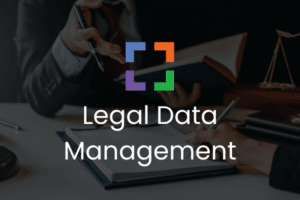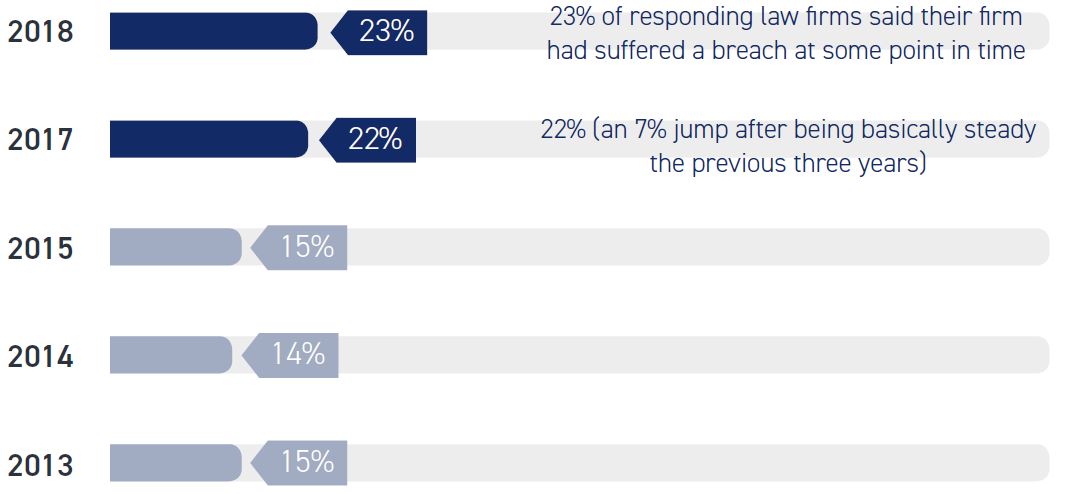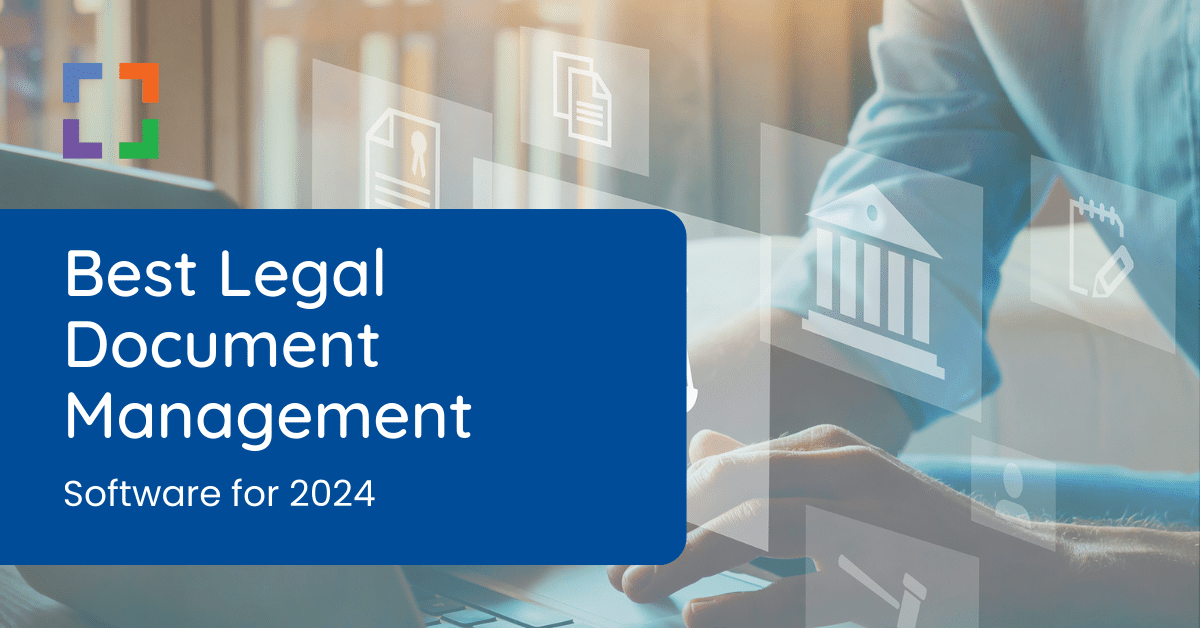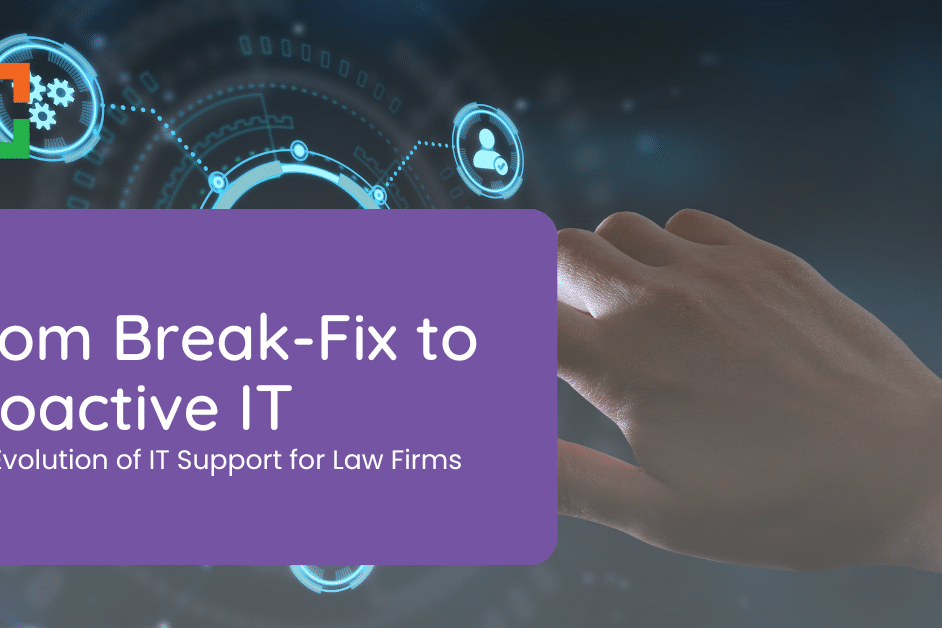Legal Data Management & Storage Solutions for Law Firms
 Legal data management stands at the forefront of modern law practice.
Legal data management stands at the forefront of modern law practice.
This comprehensive article offers an in-depth exploration of the latest strategies and technologies in data storage and security, tailored for law firms.
Readers can expect insightful discussions on ensuring compliance, managing diverse data types, and implementing robust security measures.
Additionally, the article delves into the advantages of cloud computing and future trends, equipping legal professionals with the knowledge to efficiently manage their ever-expanding digital repositories.
Let’s dive in!
Read this article to navigate the complexities of legal data management, with insights into secure storage, compliance, and the latest in technological advancements for law firms. Want to alleviate your concerns altogether? Consider IT Support for Law Firms.
In This Article
- Introduction to Legal Data Management
- Managed IT Support: A Key to Legal Data Management
- Evaluating Storage Solutions with Managed IT
- Implementing Best Practices in Legal Data Management
- Ensuring Data Security with Managed IT Support
- Leveraging Cloud Computing in Legal Data Management
- Next Steps
- Frequently Asked Questions — Legal Data Management
Introduction to Legal Data Management
The management of data has become a cornerstone for success and compliance.
As the legal industry navigates through an era marked by digital transformation, the importance of effectively managing legal data cannot be overstated. Legal data management involves a complex array of tasks, from organizing vast amounts of case-related information to ensuring the confidentiality and security of sensitive client data.
The legal profession has always been information-intensive, but the digital age has exponentially increased the volume and variety of data that law firms must handle. This includes everything from traditional documents and case files to electronic communications, court transcripts, and increasingly, large volumes of digital evidence.
The challenge lies not only in storing this data but in organizing, accessing, and analyzing it efficiently.
Moreover, law firms are bound by stringent ethical and legal obligations regarding data handling. Client confidentiality is paramount, and there are a plethora of regulations governing data privacy and security. The consequences of mismanaging data can be severe, ranging from legal sanctions to loss of client trust and damage to reputation.
In this context, Managed IT Support emerges as a vital solution. It offers a structured and secure approach to handle the increasing complexity and volume of legal data. Managed IT services can streamline data storage, enhance data retrieval efficiency, and ensure robust data security protocols are in place. By leveraging the expertise of IT professionals, law firms can not only meet their legal obligations but also gain a competitive edge through improved data management practices.
As we delve deeper into this article, we will explore how Managed IT Support plays a crucial role in various aspects of legal data management, from evaluating storage solutions to implementing best practices and ensuring data security.
Related – IT Support for Law Firms: Outsourcing your IT needs allows your firm to better focus on legal-centric work. Learn how.
Managed IT Support: A Key to Legal Data Management
The integration of Managed IT Support into legal data management represents a transformative approach for law firms navigating the complexities of the digital era.
In an industry where accuracy, confidentiality, and timely access to information are paramount, Managed IT services provide a structured, secure, and efficient framework for handling legal data.
Facilitating Advanced Data Management
Managed IT Support goes beyond basic IT functions.
It offers a suite of services tailored to the specific needs of legal data management. These services include advanced data storage solutions, cybersecurity measures, and sophisticated data analysis tools.
By outsourcing these complex tasks to experts, law firms can focus on their core legal responsibilities.
Enhancing Security and Compliance
In the realm of law, data breaches can have catastrophic consequences.
Managed IT Support plays a critical role in fortifying a law firm's data against cyber threats. It provides robust security protocols, including firewalls, encryption, and intrusion detection systems.
Moreover, IT professionals stay abreast of the latest regulatory requirements and ensure that the firm's data management practices are compliant with legal standards like GDPR, HIPAA, and others.
Streamlining Data Accessibility and Efficiency
Efficient data management is crucial for the fast-paced legal environment.
Managed IT services offer cloud-based solutions and document management systems that enhance data accessibility and collaboration among team members.
These systems enable lawyers to access case files and client information securely from any location, thus improving overall productivity and client service.
Implementing Proactive Data Strategies
Managed IT Support isn't just reactive; it's proactive.
It involves regular monitoring and maintenance of data systems to preempt issues before they escalate. This includes regular data backups, system updates, and vulnerability assessments, which are essential in maintaining data integrity and availability.
Customized Solutions for Unique Legal Needs
Every law firm has unique data management requirements, depending on their size, specialty, and client base.
Managed IT providers specialize in customizing their services to fit these specific needs, offering scalable solutions that grow with the firm.
Managed IT Support is not just a support function; it’s a strategic partner in the legal data management process.
It empowers law firms to manage their data more securely, efficiently, and in compliance with legal standards. In the subsequent sections, we will delve into how Managed IT Support enhances specific aspects of legal data management, including storage solutions, best practices implementation, and ensuring data security.
Would You Rather: Serve Clients or Manage IT?
Use Uptime Practice Next for:
- Unlimited IT Support
- Legal Software Consultation
- Cloud Storage
- Security Protection
- Data Backups
- and More!
Evaluating Storage Solutions with Managed IT
In the legal sector, where data is both voluminous and sensitive, choosing the right storage solution is critical.
Managed IT Support plays a pivotal role in this decision-making process, offering expertise and technologies that can significantly enhance the effectiveness of data storage options.
Traditional On-Premise Storage
- Overview: On-premise storage solutions, like file servers, have been the traditional choice for many law firms. They offer control and physical access to data.
- Managed IT Integration: Managed IT can optimize these systems through advanced security measures, regular maintenance, and backup solutions. This ensures that on-premise data remains secure, accessible, and up-to-date.
Cloud Storage Solutions
- Overview: Cloud storage offers flexibility, scalability, and remote accessibility. Solutions like Dropbox and SharePoint are popular, but there are concerns about security and compliance.
- Managed IT Role: Managed IT providers can help law firms navigate these concerns by selecting cloud services that meet legal industry standards. They implement additional security protocols and manage the migration process to ensure a seamless transition to the cloud.
Want Legal-Centric Cloud Storage?
With Uptime Practice Next, get:
- 500 GB Storage (add up to Unlimited)
- Full-Text Search Across All Documents
- Automatic Versioning
- Microsoft Office Integration
- Email Management
- External/Client Sharing
Hybrid Storage Systems
- Overview: Hybrid systems combine the best of both worlds — the control of on-premise solutions and the flexibility of the cloud.
- Managed IT Contribution: Managed IT services can design and maintain hybrid storage systems, ensuring they are optimized for performance, security, and compliance. They can also facilitate the integration of on-premise and cloud environments, allowing for smoother data management.
Legal Document Management Systems
- Overview: These specialized systems are designed to handle the unique needs of legal document storage, including case management, client files, and legal research materials.
- Managed IT Support: With Managed IT, these systems can be customized to suit the specific workflows of a law firm. IT experts can enhance their functionality with additional features like automated tagging, advanced search, and secure client portals.
Related – Best Legal Document Management Software: Document Management Software makes organization easy. Learn more.
Managed IT services play a crucial role in evaluating the specific needs of a law firm and recommending the most suitable storage solution.
They consider factors such as the size of the firm, the types of cases handled, data volume, and specific security requirements. The goal is to provide a storage solution that is not only efficient and secure but also scalable and compliant with legal standards.
Implementing Best Practices in Legal Data Management
Effective legal data management is not just about storing data securely but also organizing and handling it in a way that maximizes efficiency and compliance.
Managed IT Support can be instrumental in implementing best practices in legal data management.
Data Retention Policies
The development and implementation of data retention policies are essential.
Managed IT Support can help establish guidelines that dictate how long different data types are retained. This includes automating the application of these policies to ensure consistent compliance and reduce human error.
Efficient Data Archiving and Deletion
Secure archiving solutions offered by Managed IT services help store older or less frequently used data, optimizing active storage performance.
Similarly, they oversee the secure deletion of redundant data, in line with legal obligations.
Regular Data Audits and Cleanup
Conducting regular audits is another key practice.
Managed IT teams schedule these to maintain data integrity and compliance. Routine data cleanup processes are also managed to eliminate redundant, obsolete, or trivial data, ensuring efficiency and reducing costs.
Training and User Education
Ongoing staff training and education, provided by Managed IT, are crucial for the effective use of data management systems.
Continuous updates on trends and best practices in data management are also part of this training, ensuring the firm's practices evolve with changing standards.
Structuring and Organizing Legal Data
The organization of data is essential, and could beg for utilization of a document management system, managed IT services, or a combination of the two.
This involves creating a logical structure tailored to the firm's workflow, potentially using automated categorization and tagging. Data is organized by relevance, such as by client or case, enhancing both accessibility and usability.
- Document Profiling / Metadata
- Structured by Client/Matter
- Organize With Folders and Tags
- Save Emails to Matters
- Built-In Version Management
- Add Notes to Docs & Email
Implementing best practices in legal data management is a multifaceted process that requires the expertise, tools, and proactive approach offered by Managed IT Support.
This ensures not just compliance and efficiency, but also positions the firm for future technological advancements and challenges.
Ensuring Data Security with Managed IT Support
In the legal sector, where sensitive client information is constantly handled, ensuring robust data security is not just a necessity; it’s an ethical and legal imperative.
Managed IT Support stands as a critical ally in this regard, offering comprehensive and advanced security measures tailored to the unique needs of law firms.
Tailored Security Strategies
Managed IT services customize security strategies to align with each law firm’s specific needs.
This customization considers factors like the size of the firm, types of cases handled, and client sensitivity, ensuring a personalized approach to data protection.
Proactive Threat Management
A proactive stance on threat management is crucial.
Managed IT employs advanced monitoring tools not just to detect but also to preempt potential security threats. This proactive approach minimizes vulnerabilities and ensures rapid response to any security incidents.
Adherence to Evolving Legal Standards
Legal standards governing data protection are constantly evolving.
Managed IT Support stays ahead of these changes, ensuring that law firms not only meet current regulations but are also prepared for future amendments. This ongoing compliance support is crucial in an environment with stringent legal obligations.
Layered Security Measures
The implementation of layered security measures, from network defenses to application-level security, is a key function of Managed IT.
This multi-layered approach ensures that even if one level is compromised, additional barriers protect the firm’s data.
Disaster Recovery and Business Continuity
Beyond immediate data security, Managed IT services focus on disaster recovery and business continuity planning.
This involves creating robust backup solutions and recovery plans to ensure that, in the event of a cyber-attack or data loss, the firm can quickly resume operations with minimal disruption.
Continuous Education and Policy Updates
Managed IT Support extends its role to continuously educate law firm staff on the latest security trends and threats.
Regular updates to security policies and protocols are also provided, ensuring the firm's defenses evolve in line with emerging cyber threats.
Don’t forget — as technology advances, so do cyber-attacks. Take a look at these statistics from the ABA Legal Technology Survey Report.

In ensuring data security with Managed IT Support, law firms benefit from a comprehensive, dynamic approach that not only protects against current threats but also anticipates and prepares for future challenges in data protection.
Related – Cybersecurity for Law Firms: Cybersecurity should always be at the forefront of law firms’ minds and strategy. Learn how.
Leveraging Cloud Computing in Legal Data Management
The shift towards cloud computing has significantly influenced data management practices in law firms.
This section explores the unique aspects of cloud computing that specifically enhance data management, focusing less on the security and compliance aspects covered earlier and more on operational and strategic benefits.
Operational Flexibility and Efficiency
- Dynamic Adaptability: Cloud computing provides the ability to swiftly adjust data storage and processing capabilities, aligning with the fluctuating demands of a legal practice.
- Reduced IT Complexity: By moving to cloud-based systems, law firms can reduce the complexity and costs associated with managing physical IT infrastructure.
Data Accessibility and Collaboration
- Remote Access: Cloud platforms enable legal professionals to access data from anywhere, enhancing flexibility and responsiveness to client needs.
- Real-time Collaboration: The cloud facilitates seamless collaboration among team members, allowing for efficient and synchronous work on cases and documents.
Advanced Analytics and Client Service
- Data Insights: Leveraging cloud-based analytics tools, law firms can extract valuable insights from their data, aiding in more informed decision-making and client strategy development.
- Enhanced Client Engagement: With cloud solutions, firms can offer their clients more interactive and engaging ways to access case information and updates.
Sustainable and Future-Ready Practice
- Eco-friendly IT Solutions: Cloud data centers generally offer more environmentally sustainable IT operations compared to traditional data centers.
- Scalability for Future Growth: Cloud computing positions law firms to easily scale up their IT resources, ensuring they are prepared to integrate future technological advancements seamlessly.
In summary, leveraging cloud computing in data management not only brings enhanced efficiency and collaboration but also positions law firms for sustainable growth and future technological integration, ensuring they stay at the forefront of legal practice innovation.
Move Your Legal Software to the Cloud
With Uptime Practice
- Cloudify Your Legal Software
- Expert Legal Software Hosting/Support
- Cloud Storage for Documents + Data
- End-to-End Security
- Office 365 + IT Support (Optional)
Next Steps
For law firms looking to integrate Managed IT in their legal data management strategy effectively, a structured, step-by-step approach is crucial:
Conduct an Initial Audit of Your Data Management Systems
Begin by assessing your current data management practices. Identify areas where your systems excel and pinpoint weaknesses or gaps that need improvement.
Engage with stakeholders across the firm to gather diverse perspectives on data management needs and challenges.
Choose the Right Managed IT Service Provider
Research potential Managed IT service providers, focusing on those with experience in the legal sector.
Evaluate their services to ensure they align with your firm’s specific needs, especially in areas like security, cloud computing, and regulatory compliance.
Develop a Custom Data Management Plan
Collaborate with your chosen Managed IT provider to create a data management plan that addresses your firm’s unique requirements.
Establish a realistic timeline for implementing new systems and transitioning from old practices.
Implement Comprehensive Staff Training
Organize in-depth training sessions for your team. Ensure they are proficient in new systems and understand the best practices in data management and security.
Plan for ongoing training to adapt to technological advancements and changes in data management practices.
Regularly Review and Update Your Data Management Strategies
Set up regular reviews of your data management strategies and the performance of your Managed IT service provider.
Be prepared to make adjustments as your firm’s needs evolve or as new challenges in data management arise.
Stay Informed and Engage with the Legal Tech Community
Keep up-to-date with the latest trends and innovations in legal technology and data management.
Engage in legal tech forums, attend relevant conferences, and join professional groups to share insights and learn from industry peers.
By following these steps, law firms can ensure that they effectively manage their data, enhancing operational efficiency, maintaining high standards of data security, and providing better service to their clients.
Frequently Asked Questions — Legal Data Management
Legal data management involves the processes and practices of handling, storing, and organizing legal data, ensuring it’s secure, accessible, and compliant with legal standards.
Efficient data management is crucial for law firms to maintain client confidentiality, ensure compliance with data protection laws, enhance productivity, and make informed decisions based on accurate data analysis.
Cloud computing offers scalability, remote accessibility, and cost-effectiveness, making it easier for law firms to manage large volumes of data, collaborate on cases, and adapt to changing data storage needs.
The main risks include data breaches, loss of confidential client information, non-compliance with data protection laws, and inefficiencies in data retrieval and use.
Law firms can ensure data security by implementing strong encryption, access controls, regular security audits, and compliance checks, along with employee training in data security best practices.
Managed IT provides expertise in setting up, maintaining, and optimizing data management systems, ensuring they are secure, efficient, and compliant with legal standards.
Yes, effective data management leads to better organization and quicker access to case files, enabling faster response times and more informed client communication.
Data compliance is critical to meet legal and ethical obligations, protect client confidentiality, and avoid legal penalties or reputational damage due to data mismanagement.
Law firms should establish clear data retention policies compliant with legal standards, and use Managed IT services to implement automated systems for secure data archiving and timely deletion.
Law firms should seek solutions that offer robust security, compliance with legal standards, ease of use, scalability, and support for both on-premise and cloud-based data storage.
Uptime Practice:
The IT & Cloud Platform for Law Firms.
Uptime Practice is a suite of Managed IT and cloud services, made exclusively for law firms.
Practice Next
Technology + Legal Software Support for Modern Law Firms
Practice Next is a suite of Managed IT, Legal Software Support, and Cloud Essentials, made just for law firms.
-
Practice Next is a suite managed IT, technology essentials and legal software support.
-
Practice Next includes unlimited IT and legal software support, Microsoft 365, legal-centric cloud storage and more.
-
Practice Next pairs great with cloud-based legal software such as Clio Manage, CosmoLex, MyCase and more.
Practice Go
Cloudify Your Legal App
Does your law firm already have a cloud strategy, but have one premise-based application still running on onsite servers? Practice Go is for you.
- With Practice Go, we effectively turn your desktop/server- based legal software into a cloud application (a Published App), freeing your firm from the limitations of traditional software.
- Practice Go can cloudify your PCLaw, Time Matters, Tabs3, ProLaw, Juris, QuickBooks and more.
Practice Foundation
Complete Private Cloud for Law Firms
If your law firm needs a central, secure cloud platform for all of your legal software, documents and data, Practice Foundation is for you.
-
Practice Foundation is an end-to-end cloud platform that will host all of your firm's applications and documents, and will optionally include Office 365 + unlimited IT support. Everyone in your firm logs into a Virtual Desktop where they'll find all of their apps and docs.
-
Practice Foundation works with PCLaw, Time Matters, Tabs3, ProLaw, Juris, QuickBooks, Timeslips, TrialWorks, Adobe Acrobat and more.
Not Sure Which Edition You Need?
No problem. Check out our quick Comparison Chart for Uptime Practice, or Get in Touch to talk with our sales team.

Dennis Dimka
As the founder and CEO of Uptime Legal Systems, I've had the privilege of guiding our company to become a leading provider of technology services for law firms.
Our growth, both organic and through strategic acquisitions, has enabled us to offer a diverse range of services, tailored to the evolving needs of the legal industry.
Being recognized as an Ernst & Young Entrepreneur of the Year Finalist and seeing Uptime Legal ranked among the Inc. 5000 list of fastest-growing private companies in America for eight consecutive years are testaments to our team's dedication.
At Uptime Legal, we strive to continuously innovate and adapt in the rapidly evolving legal tech landscape, ensuring that law firms have access to the most advanced and reliable technology solutions.
Related Posts
January 20, 2025
5 IT Mistakes that Expose Law Firms to Cyber Threats
September 30, 2024
How to Properly Utilize the 2024 Legal Software Report
September 26, 2024
Outsourced but Onshore: Navigating Law Firm IT Regulations
June 27, 2024
The Impact of Remote Work on Law Firm IT
May 29, 2024
The Real Value of Legal Specialty in IT Services
April 24, 2024
Comparing Types of IT Providers for Law Firms
March 13, 2024
Law Firm Collaboration Software
February 28, 2024
Law Firm Disaster Recovery and Business Continuity Planning
February 22, 2024
Types of IT Services for Law Firms
February 1, 2024
How to Choose the Right IT Provider – A Guide for Law Firms
January 9, 2024
VoIP for Law Firms
December 15, 2023
Cybersecurity for Law Firms
December 8, 2023
Managed Cloud Services for Law firms
November 15, 2023
Outsourced IT for Law Firms
November 9, 2023
Managed IT Services for Law Firms
October 11, 2023
IT Support for Law Firms
August 30, 2023
Microsoft Teams for Law Firms
March 8, 2023
What is Legal Document Management?
December 22, 2022
Interpreting the 2022 Legal Trends Report
June 17, 2019
Law Firm IT – What Are Your Options?
June 10, 2019


































